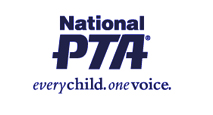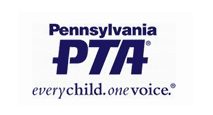The PSSAs will begin the week of April 9th, 2018 for students in grades 3-8. This year there will be 3 sections of English Language Arts, 2 sections of Math, and 2 sections of Science (only for students in grades 4 and 8).
FAQ_for_Parents_PSSA_2018
For more information from the School District of Philadelphia regarding PSSAs, click here.
2016 Information from the Caucus of Working Educators:
Opt Out 101: For Parents and Students of the Philadelphia School District
WHY NOT TAKE THE TESTS?
- Our kids deserve better… and so do you!
We know that these tests do not measure all the amazing work you do with our kids. We also know that your own assessments and observations are a much better measure of how our children are progressing. You know what our kids need. These tests don’t.
- It’s time to stop allowing test scores to define you, our students, and our schools!
Current laws use standardized scores to rank and evaluate schools, and often portray our schools as struggling. But we know our schools aren’t failing. Unreliable scores should not determine whether or not you are an effective teacher or if a school is doing its job.
- The tests are not developmentally appropriate.
Does a third grader really have the computer skills to simultaneously scroll two screens, highlight, drag and drop, and type as the test requires? Many education experts argue the actual content of the test is developmentally inappropriate, too. The standards, the questions, and even some of the reading passages are years too advanced in many cases.
- Testing limits use of school resources.
Testing time usually limits everyone’s access to instructional time, libraries, computer labs, art rooms, Wi-Fi, bandwidth……the list goes on and on. Entire schools are affected during testing time – even for grades who are not participating.
- Our federal funding is not really in jeopardy.
Not a single district nationwide has lost funding because of low participation. And the threat itself is misleading. Federal documents assert that some Title I funding may be reallocated due to low participation. But again, this has never happened – even in districts with over 50% opt out rates.
- Cost
Standardized testing costs millions of taxpayer dollars. Between test prep, practice tests, and multiple tests administered at multiple points during the year, you also lose valuable time with your students.
- We are NOT protecting our kids from failure!
A common criticism of opt out parents is that we are “helicopter parents,” unable to allow our children to experience failure. The reality, however, is that many of our children would in fact score quite well. For others, the test anxiety and stress is a factor. Yes – we know struggle and failure are important. But these tests are not the type of struggle that will help our children grow.
- Data fuels the education reform machine.
Truth is, standardized testing has never been about kids or learning. They are designed to fuel the educational market to reward investors – not kids, not teachers. What if they gave a test and nobody came? There would be no data. And with no data, the education reform machine stops running. It’s time we give classrooms back to teachers.
(Credit to the Lewiston Opt Out Parents)
Opt Out for Religious Reasons Letter (PDF)
Test Refusal Letter (PDF)
Phila School District Protocol for Parents to View the PSSA/ Keystone Tests (PDF)
If anyone is interested in learning and discussing more about Opting Out at Henry, you can email Robin Roberts, a Henry mom, at robrob (at ) gmail dot com.
Also there is a Google group:
http://www.opt-out-philly@googlegroups.com
Facebook:
https://www.facebook.com/OptOutPhilly
https://www.facebook.com/United-Opt-Out-National
General Info:
Pennsylvanians Restoring Education
Wiki: Opt Out of State Standardized Tests
Article from Philly.com
As protests rise over high-stakes tests, more students likely to opt out
Article from The Nation:
These Politicians Think Your Kids Need High-Stakes Testing—but Not Theirs
Article from The Progressive:
The Fight Against Standardized Testing is More Diverse Than You Think
An example from a test administrator:
“Today I administered a standardized test to a group of third graders. One boy raised his hand on the first question and asked if I could explain it to him. I apologized and explained that I wasn’t allowed to help him, and I told him to just make his best guess if he didn’t know how to answer. He finished the entire test in less than 15 minutes (it was supposed to take an hour), just picking random answers and typing in “I don’t know” when the question called for a longer response. After logging out, he got some pieces of paper, folded them in half and made himself a little book. He wrote “Life on the Mississippi” on the front and drew a detailed picture of a boat with people fishing on it. On the back he wrote a blurb about how his book would be based on the adventures of Huckleberry Finn (which he then told me was a REALLY good book that he’d just finished), and on the inside cover he wrote a note about the author: “John is nine years old. When he was six, he hated reading, but now he loves it!” He had a table of contents listing what all his chapters would be about, and he showed me where he was going to write about how he got his inspiration for his story. He spent the rest of the session writing and drawing pictures while the other kids finished the test.
Now, that kid is going to get a terrible score on his test. He’s going to look like he doesn’t know anything. That score is going to bring down the average of our school and make it look “less desirable” when they print the overall school scores in the newspaper. That score is going to make his classroom teacher look like she’s incompetent. But it’s pretty obvious to me and to other teachers in the school that that kid has something going for him and that we’re all doing something right. I know there’s a place for standardized assessments, but there’s no way they can capture the great things going on in our schools, and there’s no way they can possibly define an individual student.”


